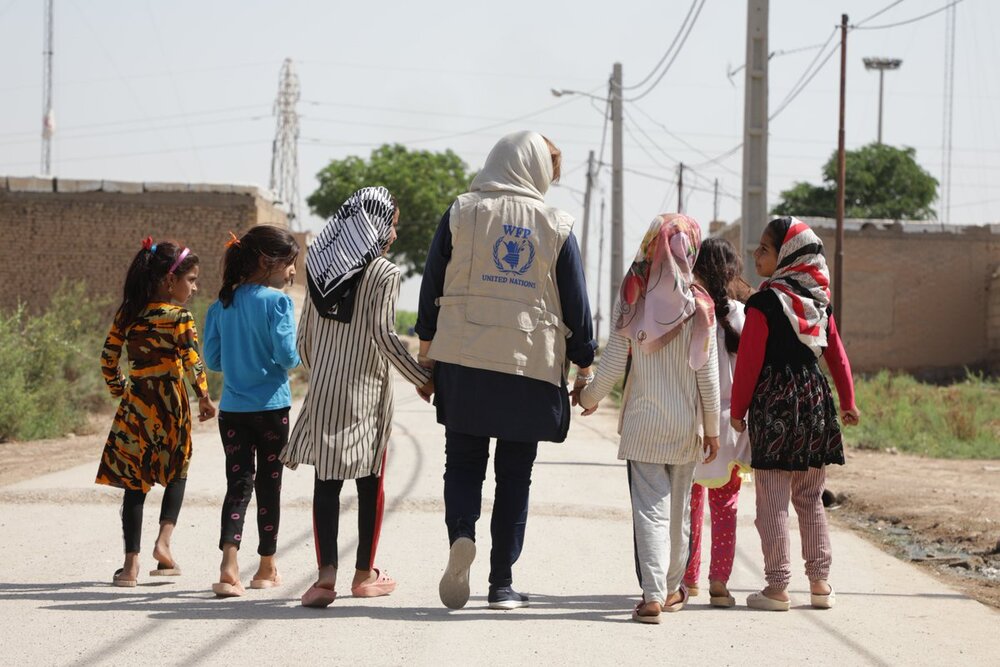WFP donates over $232,000 to refugees residing in Iran

TEHRAN – The World Food Program (WFP) donated a total cash worth of $232,282 and 274.4 metric tons of fortified wheat flour, vegetable oil, and lentils to the refugees residing in Iran in the month of June, according to a report released by the WFP.
Additionally, WFP continues to support refugees’ livelihoods through activities that aim at providing them with complementary skills in view of sustainable repatriation to their country of origin once the situation is conducive. WFP has been present in Iran since 1987.
General food distributions in refugee settlements are ongoing with increased health and safety measures due to COVID-19. Cash-based transfers are also operational. 26.5 MT of home-schooling rations including UHT milk, biscuits, date bars, and seed kernels have been distributed to 7,000 children and 500 teachers since mid-April due to nation-wide school closures.
By providing supplementary rations and maintaining monthly assistance to refugees through a combination of cash and food, WFP is reducing the economic impact on beneficiaries caused by negative market developments, such as inflation and rising food prices.
Following the receipt of $7 million from the Government of Japan in response to the COVID-19 pandemic, the last consignment including 350,400 3-layer surgical masks and 739,000 N95 masks were handed over to Iranian Red Crescent Society to be used by Iranian health workers.
The Iranian Ministry of Foreign Affairs and the Bureau for Aliens and Foreign Immigrants Affairs (BAFIA) are the main cooperating and implementing partners of WFP in Iran. BAFIA is responsible for coordinating all matters related to refugees and international agencies.
Biannual meetings take place between BAFIA, UNHCR, and WFP. Monthly operational coordination meetings are also held to monitor the refugee situation and discuss appropriate response actions.
Monitoring of the economic situation in the country indicated no shortage of food items during the reporting period. However, in April, the impact of COVID-19 on price levels for fresh food products started to be felt. Fruits (including sweet lemon, sour lemon, apple, and orange) and vegetables (including, tomato, potato, and pulses) recorded the highest price increase, reaching 19 and 14 percent respectively.
The country office is monitoring the development of the COVID-19 pandemic closely and is in consultation with the Government partners for further possible assistance to refugees and the Iranian community. With strict travel and camp access restrictions in place, WFP has had to resort to remote monitoring activities.
FB/MG
